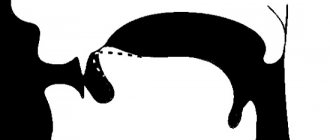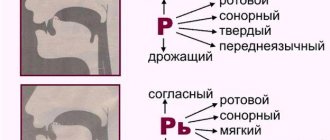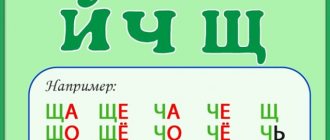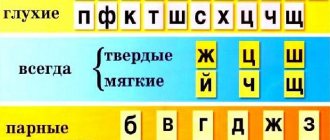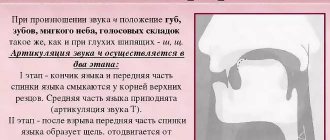Lexical means: tropes
Allegory - Themis (woman with scales) - justice. Replacement of an abstract concept with a concrete image.Hyperbola — Bloomers as wide as the Black Sea (N. Gogol) Artistic exaggeration.Irony - Where are you getting your head from, smart one? (Fable by I. Krylov). Subtle mockery, used in the opposite sense to the direct one. Lexical repetition - Lakes all around, deep lakes. Repetition of the same word or phrase in the textLitota - A small man. An artistic understatement of the described object or phenomenon.Metaphor — Sleepy lake of the city (A. Blok) Figurative meaning of the word based on similarityMetonymy — The class was noisyReplacing one word with another based on the contiguity of two conceptsOccasionalisms - The fruits of education. Artistic means formed by the author.Personification - It is raining. Nature rejoices. Endowing inanimate objects with the properties of living things. Periphrase — Leo = king of beasts. Substitution of a word with an expression similar in lexical meaning.Sarcasm — The works of Saltykov-Shchedrin are full of sarcasm. Caustic, subtle mockery, the highest form of irony.Comparison -When a nightingale speaks a word, it sings. In comparison, there is both that which is compared and that with which it is compared. Conjunctions are often used: as, as if, as if. Synecdoche - Every a penny brings (money) into the house. Transfer of value based on quantitative characteristics.Epithet - “ruddy dawn”, “golden hands”, “silver voice”. A colorful, expressive definition that is based on a hidden comparison.Synonyms - 1) run - rush. 2) The noise (rustle) of leaves. 1) Words that are different in spelling, but close in meaning. 2) Contextual synonyms - words that are similar in meaning in the same context Antonyms - original - fake, callous - responsiveWords with opposite meaningsArchaism - eyes - eyes, cheeks - cheeksAn outdated word or figure of speechWhat are the figurative and expressive means of language?
All visual and expressive means are divided into:
- lexical (special: tropes, non-special: synonyms, antonyms, etc.)
- syntactic (stylistic figures of speech);
- phonetic.
Lexical figurative and expressive means of language - tropes - are words and expressions used in a figurative sense in order to create an emotional image when describing a phenomenon. Paths make it possible not only to understand, but also to feel what is described or said in words.
Syntactic figurative and expressive means - figures of speech - are a special construction of words to enhance the emotional impact of the text. Figures of speech make you feel more strongly those moments on which the author emphasizes.
In turn, tropes and figures of speech have their own classification:
Basic elements - paths
So, below we list the main elements of lexical figurative and expressive means - tropes.
An epithet is an artistic and figurative description of a phenomenon: stately aspens, mighty oak, languid light.
A metaphor is a hidden comparison: an airplane wing, a crescent moon, a sunset fire.
Metonymy is the renaming of an object or phenomenon based on close, easily understood connections between the words being replaced. For example, the forest sings (instead of “the birds in the forest sing”); the city is sleeping (instead of “the inhabitants of the city are sleeping”); the kettle is boiling (instead of “the water in the kettle is boiling”).
Synecdoche is the name of a whole through its part and vice versa. For example, save a penny (money); the viewer(s) are worried.
Hyperbole is an artistic exaggeration: an ocean of love; endless plain; not seeing each other for a hundred years.
Syntactic means
Anaphora - The thunderstorm was not in vain. Repetition of words or combinations of words at the beginning of sentences or poetic lines.Antithesis - Long hair - short mind;.Contrast.Gradation - I came, I saw, I conquered! Arrangement of words and expressions in increasing (ascending) or decreasing (descending) significance.Inversion - Once upon a time there lived a grandfather and a woman. Reverse word order.Compositional junction (lexical repetition) - It was a wonderful sound. It was the best voice I've heard in years. Repeating at the beginning of a new sentence words from the previous sentence, usually ending it. Multi-union - The ocean walked before my eyes, and swayed, and thundered, and sparkled, and faded away. Deliberate use of a repeating conjunction.Oxymoron - Dead souls. A combination of words that cannot be combined in meaning.Parcellation - He saw me and froze. I was surprised. Silenced. Deliberate division of a sentence into semantically significant segments. Rhetorical question, exclamation, appeal - What a summer, what a summer! Who hasn’t cursed the stationmasters, who hasn’t sworn at them? Citizens, let's make our city green and cozy! Expressing a statement in interrogative form; to attract attention; increased emotional impact. Series, pairwise combination of homogeneous members - Nature helps to fight loneliness, overcome despair, powerlessness, forget hostility, envy, and the deceit of friends. The use of homogeneous members for greater artistic expressiveness of the textSyntactic parallelism - To be able to speak is an art. Listening is a culture. (D. Likhachev) Similar, parallel construction of phrases and lines. Default - But listen: if I owe you... I own a dagger, / I was born near the Caucasus. The author deliberately understates something, interrupts the hero’s thoughts so that the reader can think for himself what he wanted to say.Ellipsis - Guys - for the axes! (the word “taken” is missing) Omission of some member of the sentence that is easily restored from the context Epiphora - I've been coming to you all my life. I believed in you all my life. Same ending for several sentences.Development of a literature lesson in grade 5 “Means of artistic expression”
They ate up to 200 varieties that enrich the language.
Means of expressive speech are divided according to language level into:
- phonetic;
- lexical;
- syntactic.
The use of phonetics is traditional for poetry. Musical sounds often predominate in a poem, giving poetic speech a special melodiousness. In the drawing of a verse, stress, rhythm and rhyme, and combinations of sounds are used for emphasis.
Types of means of expression
Anaphora is the repetition of sounds, words or phrases at the beginning of sentences, poetic lines or stanzas. “The golden stars dozed off...” - repetition of the initial sounds, Yesenin used phonetic anaphora.
And here is an example of lexical anaphora in Pushkin’s poems:
Alone you rush across the clear azure, Alone you cast a dull shadow, Alone you sadden the jubilant day.
Epiphora is a similar technique, but is much less common, in which words or phrases are repeated at the end of lines or sentences.
The use of lexical devices associated with a word, lexeme, as well as phrases and sentences, syntax, is considered as a tradition of literary creativity, although it is also widely found in poetry.
Conventionally, all means of expressiveness of the Russian language can be divided into tropes and stylistic figures.
Trails
Tropes are the use of words and phrases in a figurative sense. Paths make speech more figurative, enliven and enrich it. Some tropes and their examples in literary work are listed below.
Epithet is an artistic definition. Using it, the author gives the word additional emotional overtones and his own assessment. To understand how an epithet differs from an ordinary definition, you need to understand when reading whether the definition gives a new connotation to the word? Here's a simple test. Compare: late autumn - golden autumn, early spring - young spring, quiet breeze - gentle breeze.
Personification is the transfer of signs of living beings to inanimate objects, nature: “The gloomy rocks looked sternly...”.
Comparison is a direct comparison of one object or phenomenon with another. “The night is gloomy, like a beast...” (Tyutchev).
Metaphor is the transfer of the meaning of one word, object, phenomenon to another. Identifying similarities, implicit comparison.
“There is a red rowan fire burning in the garden...” (Yesenin). The rowan brushes remind the poet of the flame of a fire.
Metonymy is renaming. Transferring a property or meaning from one object to another according to the principle of contiguity. “The one in felt, let’s argue” (Vysotsky). In felt (material) - in a felt hat.
Synecdoche is a type of metonymy. Transferring the meaning of one word to another based on a quantitative connection: singular - plural, part - whole. “We all look at Napoleons” (Pushkin).
Phonetic means: sound recording
Alliteration - Completehsometimes in the swamp depthswAnd/ Hwow wordswbut, damnwsmart wurshat kamawand - a combination of hissing consonants helps to convey the rustling of the reeds. The repetition of consonants creates an image.Assonance - LYublYu birch treesat Ratsskwow It's brightwow, then gratstnwow – conveys slight sadness and tenderness. Repetition of vowels, creating an image.Gradation - I came, I saw, I conquered! The arrangement of words and expressions is in ascending order (inSolve task 26 of the Unified State Exam in the Russian language with answers.
Unified State Exam Russian language. Express preparation. Task No. 26. Language means of expression.
Types of words by meaningSynonyms are words of one part of speech that differ in shades of meaning and stylistic use in speech (magnificent, excellent, amazing, luxurious, excellent, wonderful, cool, super).
Contextual synonyms are words that are synonyms only in a given context.
For example: by nature she was a kind, gentle woman.
Synonyms for these words outside the text:
Kind - warm-hearted, sincere, compassionate, humane, etc.
Soft - plump, plastic, elastic, fluffy.
Antonyms are words that have opposite meanings (reject - approve, original - fake, callous - responsive).
Contextual antonyms are words that are antonyms only in a given context. The contrast of such words is a purely individual author’s decision.
For example: one day is a whole life, wolves are sheep, a poet is a poet.
Homonyms are words that are spelled the same, but have completely different meanings (a maiden’s braid and a scythe as an agricultural tool).
Paronyms are words that are similar in spelling and sound, but have different meanings (great - majestic, spectacular - effective).
Types of words by area of use
Common words are words whose meaning is known to all people, all speakers of a given language (sky, school, blue, walk, beautiful, etc.)
Dialectisms - these words are used by residents of a certain area ("sadnova" - that is, constantly, used in the outbacks of the Volga region).
Professionalisms (or special vocabulary) - these words are used by people of a certain profession (syringe, scalpel - by doctors; root, morphology, syntax - by Russian language teachers).
Terms are the names of certain concepts that are used in a particular field of knowledge (for example: function, democracy)
Jargons are words and expressions that are used in social groups during informal communication (for example: glitch, hack - computer jargon, that is, slang; ksiva, malyava-thief jargon; teacher, troyak, homework - school;
Types of words by origin
Outdated vocabulary (archaisms ) are outdated words that came out of constant speech, as over time they were replaced by other words (eyes, eyes, cheeks, cheeks).
Historicisms are obsolete words that have fallen out of use due to the disappearance of the phenomena that they denoted. These words can be used to describe a historical era (chain mail, boots).
Neologisms are new words that have recently appeared in the language and have not lost their novelty. Over time, these words become part of the group of commonly used words. So, quite recently, neologisms were the words: computer, tablet, mobile phone, smartphone, but today they are already moving into the category of commonly used words.
Original Russian words - words that arose in ancient times among the Eastern Slavs, Old Church Slavonicisms (sweet, enemy, know)
Borrowed words (foreign words) - by origin, these words are borrowed from other languages. This often happens during a period of economic, cultural communication, interconnections between countries and peoples. (For example, hyperbole is a word of Greek origin, modernization is of French origin).
Barbarisms are foreign words that have entered Russian speech, but are always perceived as foreign. They are often used to describe foreign life, etiquette, etc. (For example: monsieur, boyfriend, businesswoman).
Types of words by area of use
Stylistically neutral vocabulary is words that are not attached to a specific style of speech (compare: fragrant - fragrant, evidence - arguments)
Book vocabulary - used in book styles: scientific literature, official business, journalistic style (for example: declarative, count, conjuncture)
Colloquial vocabulary - words used in oral speech, often in everyday communication
(braggart, reader, bully.)
Colloquial words are words of colloquial vocabulary, but with their own characteristics:
-violating language norms (traNvay instead of tramvay, kvartal instead of kvartal)
- violating moral standards, rude words (badass, drag)
- vulgar, abusive language that insults a person.
Emotionally charged words (expressive vocabulary, evaluative vocabulary) are words that express attitudes towards others, phenomena, actions, positive and negative (for example: friend, power, gate, guard).
Phraseologisms are stable phrases that are equal in meaning to one word.
From the point of view of stylistic coloring, phraseological units are:
- colloquial: run headlong - quickly, work carelessly - be lazy
— book: apple of discord, finest hour
- colloquial: screw your brains, stupid head.
